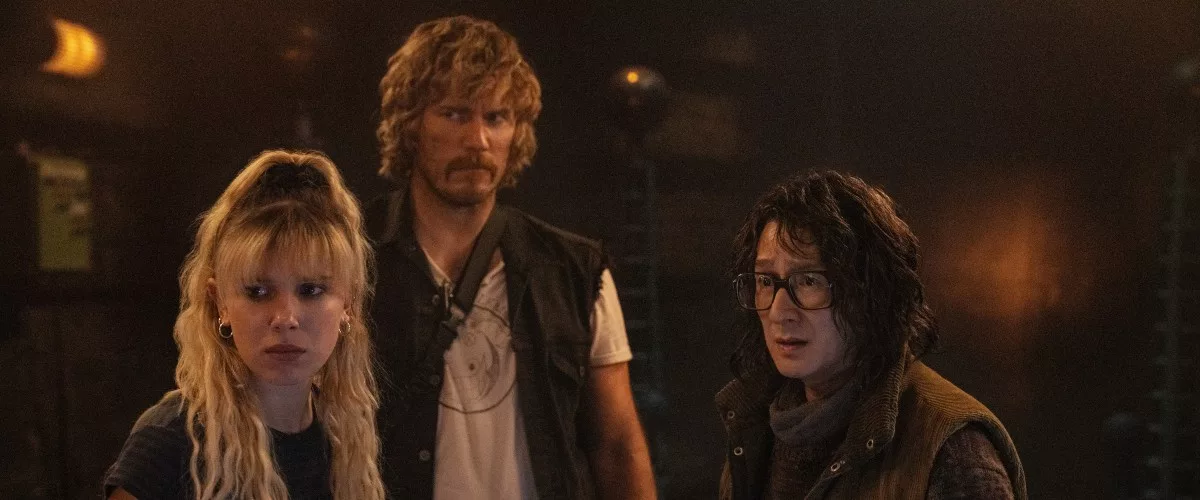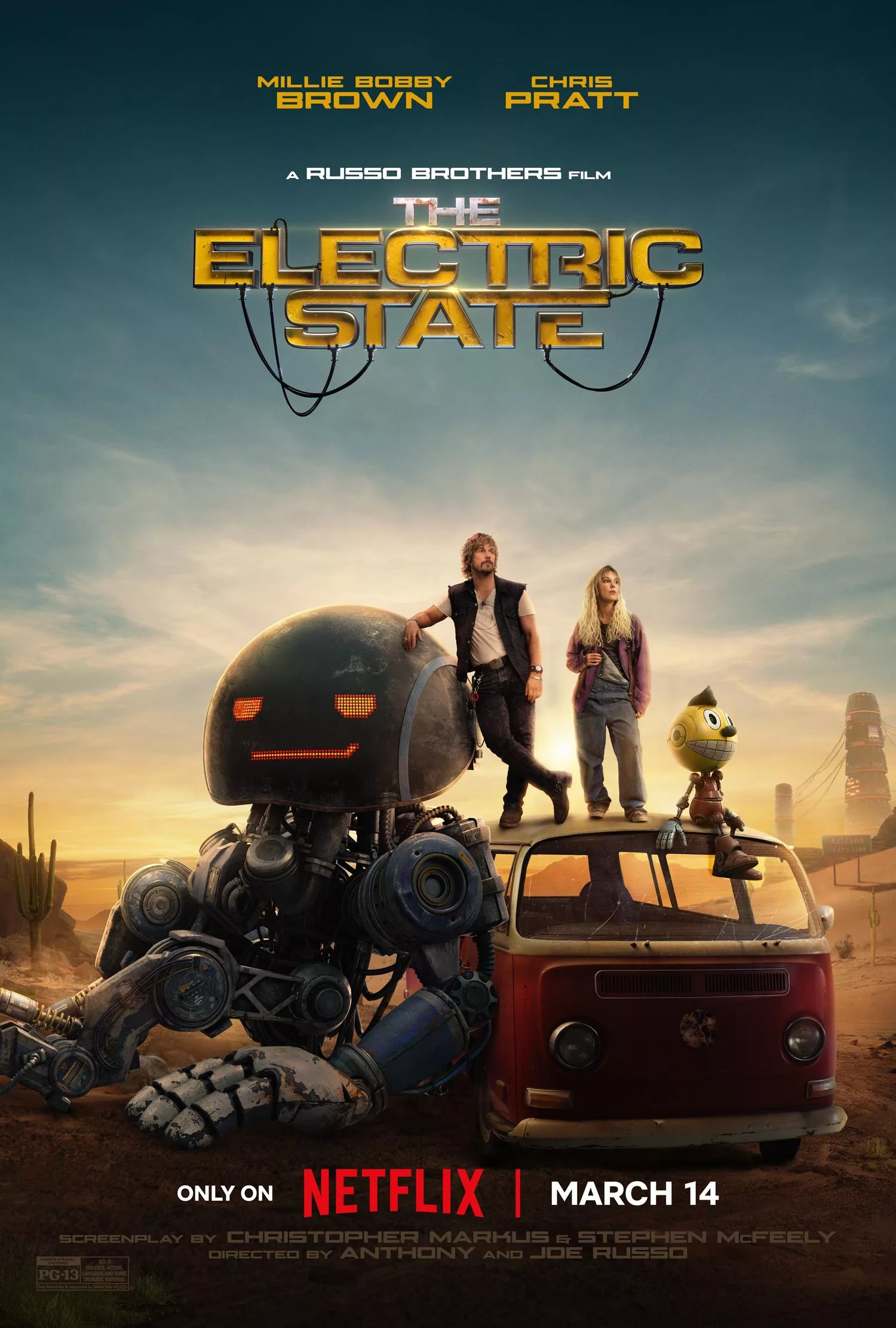A long time ago, I was having lunch with a friend, a writer-performer of no small renown, who would shortly quit New York and create a provocative, genre-stretching series for cable. And at that meal, he very kindly complimented me: “One thing I like about your reviews is that you seem not to ever go into a picture with a preconceived notion of what it’s going to be like, or how good or bad it will be. You always have an openness to what you’re looking at.” I relate this anecdote not to impress you with my cool and accomplished friends, but to explain why I’m going a little soft on “The Electric State,” the new movie directed by Joe and Anthony Russo currently being lambasted by other film critics across the nation, and soon, perhaps, the world.
It’s not a difficult film to lambaste. Adapted from the illustrated novel of the same name by Simon Stålenhag (sometimes called a graphic novel, but its actual form is of discrete paragraphs with large scale illustrations on each page or so, whereas a proper graphic novel will have dialogue balloons and such), it’s often simultaneously self-satisfied and cloying. This gives an edge of distaste to even the more clever bits it offers up, for instance the alternate-universe history of the 1990s, including a war with robots, that sets up the movie’s story proper.
Which is: robots are now super outlawed, which poses a problem for Millie Bobby Brown’s Michelle, who discovers that the consciousness of her long-lost and much-beloved brother Chris is residing in a clunky bot patterned after a once-popular cartoon character named Cosmo. A series of clues tells Michelle that what she needs is in a remote and, of course, forbidden spot called “The Exclusion Zone.” Escaping her abusive dad (played by Jason Alexander, reverting to a type he portrayed in, um. “Pretty Woman?”) who, like much of the rest of the world, is addicted to a virtual-reality headset that reduces its users to catatonia ala “Infinite Jest,” she sets off with Cosmo and soon enlists a scavenger outlaw played by Chris Pratt to be her reluctant docent.
The villain of the piece is Stanley Tucci’s Ethan Skate, an evil tech mogul (is there any other kind nowadays?) who owns all the towers that run the headsets. And you are not going to BELIEVE what’s actually powering those headsets, not to mention the human-controlled legal robots (called drones) that make up Skate’s private army. When I say you’re not going to believe it, I mean that literally, because the rationales here are incredibly not believable. Just go with it! You have no choice with the Russo’s near-oppressive storytelling style.
So what’s good, as Lou Reed once asked in Wim Wenders’ “Faraway So Close!” a less than wholly artistically successful film that is preferable to this one by a factor of…a large factor, let’s say. Well, Brown, as Michelle, has a lot of integrity and charisma. (Pratt’s performance, on the other hand, could just as well have been cobbled together from “Guardians of the Galaxy” outtakes; honestly, I’m not entirely sure it wasn’t.) You might have fun recognizing the all-star voices of the robots, including Woody Harrelson, Jenny Slate, Anthony Mackie, and Brian Cox. Ultimately, this is one of those movies where it seems okay if you like this sort of thing for a while, but after it crosses the 90-minute mark, it seems irretrievably a little much even if you like this sort of thing.
















